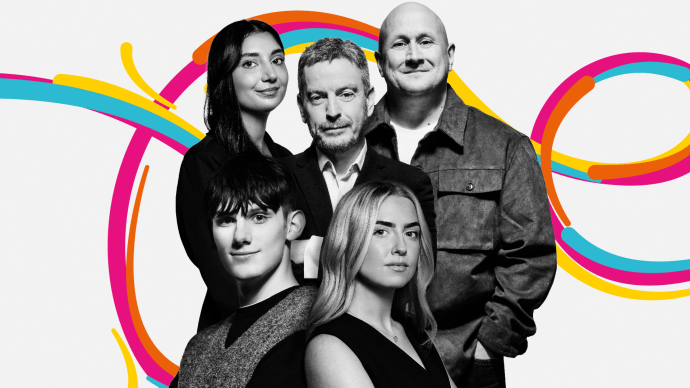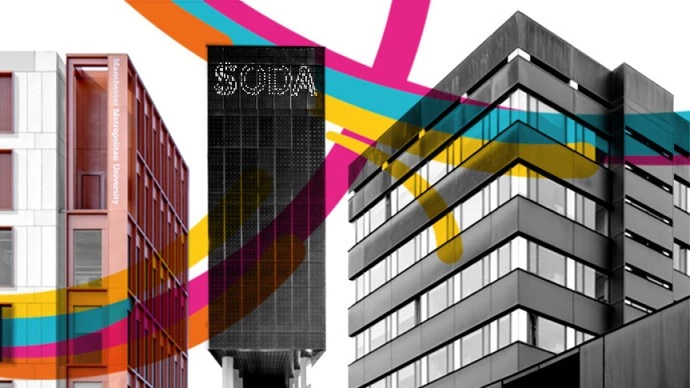Professor Liz Price on leading Manchester Met’s commitment to sustainability
Professor Liz Price

Standfirst
When Professor Liz Price began her career, the world was only just waking up to the possible disaster climate change could bring to the planet if nothing was done about it.
Fast forward 30 years and it’s an integral part of her life. Indeed, Prof Price is an academic whose pioneering work has helped to establish the University as a leader in sustainability.
Main story
Earlier this year Prof Price, the University’s Deputy Pro-Vice-Chancellor for Sustainability, received an MBE in the King’s birthday honours for services to sustainability education.
With years of hard work behind her, Prof Price is quick to credit all those that have, and continue to, play a part in driving this agenda across education, research, campus and partnerships at the University.
“It was definitely recognition of a team effort,” says Liz. “Most of all I’m pleased that the MBE highlights the importance of sustainability education.”
Liz has played a pivotal role in developing and implementing the University’s Leadership in Sustainability Strategy, establishing Manchester Met at the forefront of sustainable development with a commitment to achieving a zero-carbon future.
The University celebrated over a decade as a top three sustainable university in the People and Planet University League in 2023 and has pledged to integrate Education for Sustainable Development and Carbon Literacy across all its courses by 2026.
But what lies behind these commitments, and why has the importance of sustainability become so prominent, not just to universities but to society as a whole?
Global challenges, global solutions
“I think the reason why sustainability is important is that we all face significant interconnected global challenges,” says Prof Price.
“These include climate change, biodiversity loss, pollution, social inequality and also health threats. I would argue that the survival of our societies and our shared planet depends on a more sustainable future.”
For Prof Price, her journey from a passion and interest in sustainability to her being awarded with an MBE, started with inspiration years before she entered the world of academia.
“As I was growing up, I was inspired by people like the environmentalist Jacques Cousteau, the natural historian David Attenborough and the explorer Christina Dodwell who motivated me to go on and study biology at university,” she says.
And since joining Manchester Met over 30 years ago, she has developed the knowledge and skills to help bring people across the University together in a commitment to a sustainable future.
Sustainable development is a process of addressing social, environmental and economic concerns to create a better world
“Sustainable development is a process of addressing social, environmental and economic concerns to create a better world, and as an environmental scientist I was always able to bring sustainability into my work,” she explains.
“Now we’ve been able to not only focus on the brilliant work we do on campus but also on our academic work in leadership, partnerships and crucially education and research.”
Liz credits the work of the University’s students and staff in ensuring Manchester Met has set, an indeed met, many of its sustainability goals over the years.
But it is also the engagement and relationships with partner organisations that has made a real impact.
“One of the key features about good sustainability practice is that you you work on real world problems in partnership with external organisations, whether in local or international communities or with professional partners and businesses,” Liz explains.
And the impact of this partnership working can already be seen, not just in Manchester Met’s sustainability commitments, but in providing students and industry with the skills needed for a greener future.
Liz is the driving force behind the University’s pledge to work with its partners and businesses across the North West to achieve the ambition of creating a net zero region by 2038.
Green-skilled graduates
The creation of Manchester Met’s Leadership in Sustainability Strategy outlines how the University will prepare students for future careers, when every job will have a sustainability element to it, bringing businesses together to ensure these opportunities are recognised and supported.
“We’ve really tried to engender a whole institution approach to sustainability so that students ‘learn what they see and see what they learn’,” says Liz.
There’s huge demand now for professionals with knowledge of sustainable development. We’ve had numerous conversations with our employer partners and they tell us that’s what they really want.
“They need graduates who have those skills and who can apply sustainability principles to whatever role they do. The University has developed some fantastic initiatives such as ‘every job is a green job’ to support our students in progressing to those jobs of the future.”
The University’s 200-year celebrations have provided the perfect opportunity to look towards this future. And it is one that Liz feels Manchester Met is well prepared to meet.
“I think the most important thing for me is encouraging everybody to get involved and helping them to see the value that sustainability adds to their everyday lives, and their professional roles, so they are motivated and equipped to be agents of change for sustainability.”
More stories
Discover more
-
![Luke Cronshaw, the Commercial Director of Enviroheat, posing in front of radiators at his factory]()
Energising sustainable power
Find out more -
![Dr Dave Megson smiling at the camera.]()
How environmental chemistry is hitting the headlines
Find out more -
![Andy Ridley in a citizens of the great barrier reef shirt smiling at the camera]()
A Q&A with Andy Ridley
Find out more
About 200 years
Manchester Met celebrates two centuries of driving progress through excellent education and research.
-
![200 years 1824-2024]()
200 years
Find out more -
![Siemens Chief Executive Carl Ennis posing with the firms degree apprentices]()
Driving economic growth
Find out more -
![Two nurses standing together and smiling]()
Transforming health
Find out more -
![A digital image of the university's arts buildings]()
Championing creative excellence
Find out more







